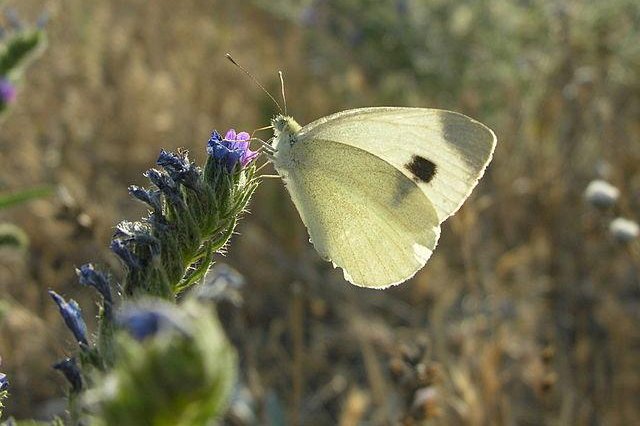Scientists have shown that light-colored butterflies are expanding northward as climates warm across Europe. (CC/Adrian198cm)
LONDON, May 27 (UPI) -- Global warming may not be so great for polar bears and ski bums, but the warming climate in Europe is lending a competitive advantage to light-colored butterflies and dragonflies.
A new study published this week in the journal Nature Communications by scientists from the Imperial College London, Philipps-University Marburg and University of Copenhagen suggests that as Europe's climate warms, lighter-colored species of butterflies and dragonflies are expanding their range.
The Southern Small White, for example, a species (Pieris mannii) partial to the Mediterranean, has become an increasingly common sight in Germany over the last decade.
Meanwhile, the scientists found, darker species are forging northward in efforts to escape the heat.
The scientists used imaging analysis to assign color values to butterfly and dragonfly wings and bodies. Comparing these values to geographic distribution info and temperature trends, they were able to show a correlation between shifting temperatures and species on the move.
The logic behind -- or reasoning for -- the phenomenon isn't exactly revelatory. Scientists already knew darker-hued animals are able to better absorb heat and stay warm in cool climes, while lighter-colored animals can reflect light and prevent overheating in warmer climes.
What's more important, the scientists say, is that their study is evidence that global warming is already having an affect on various species.
"We now know that lighter-colored butterflies and dragonflies are doing better in a warmer world," explained Carsten Rahbek, professor of life sciences at Imperial College London. "And we have also demonstrated that the effects of climate change on where species live are not something of the future, but that nature and its ecosystems are changing as we speak."















